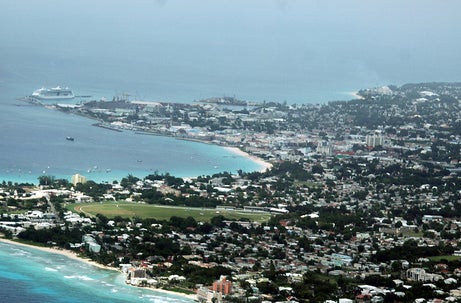When we think about climate change and protecting coastal areas we usually visualize something scientific like big boulders, reefs, boardwalks and jetties. The Climate Change Coastal Community Adaptation Resilience and Knowledge (CCCCE-ARK) regional project despite its ostentatious name, however, has taken coastal protection to the grassroots. The two and a half year Multilateral Investment Fund (MIF) of the Inter-American Development Bank (IDB) funded project already underway in Jamaica, Belize, Barbados, and the Bahamas seeks to develop adaptation plans for the community as a whole, and also for the 50 enterprises participating in the project. It is implemented by CARIBSAVE and focuses primarily on four (4) livelihood sectors: tourism, agriculture, fisheries and craft – the predominant mainstays of many coastal communities across the region.
In the first two components of the project, the communities were identified and the individuals chosen for training. Approximately 300 Micro, Small and Medium-sized Enterprises (MSME) operators were trained to better understand climate risks, the need for adaptation, and to assess how climate and other negative impacts can affect each stage of the business’ operational process with a view to addressing the weaknesses of each stage, and thereby build resilience and engrain sustainability.
CARIBSAVE’s training partners, the Travel Foundation and the Inter-American Institute for Cooperation in Agriculture (IICA) developed the training materials for the project. It is expected that the training will be transferred beyond participating businesses, which in some cases are run from the family home to other members of the family and the wider community.
The communities now benefitting from the CCCCE-ARK project are:
- Marsh Harbour & Hope Town, Abaco, Bahamas
- Fresh Creek, Andros, Bahamas
- Oistins, Barbados
- Hopkins Village, Belize
- Placencia, Belize
- Weston/Holetown, Barbados
- Port Antonio, Jamaica
- Bluefields, Jamaica
Now at Component Three, MSMEs that are seen as particularly vulnerable, and who show a willingness and determination to implement specific adaptation activities, will receive further in-depth training and assistance, beyond that which is provided at the sector level in Component Two.
Component Four will capture all the lessons learnt with a view to producing a sustainable solution that meets the needs of MSMEs in these coastal areas. Some of the key concerns noted related to:
- Storms & hurricanes, flooding, drought, sea level rise and storm surge impacts
- A high number of operators run cottage enterprises, and their place of business is also their place of residence. Therefore, devastating impacts would mean a double loss of home and business assets
- Lack of insurance
- The strain on micro-businesses to secure access to capital
In the final analysis, CCCCE-ARK will be a catalyst for change in the way MSMEs approach and conduct their coastal businesses. It is expected to help with the identification of the coastal populations and the development of marketing and adaptation strategies for MSMEs in coastal and natural-resource-dependent communities.


Leave a Reply